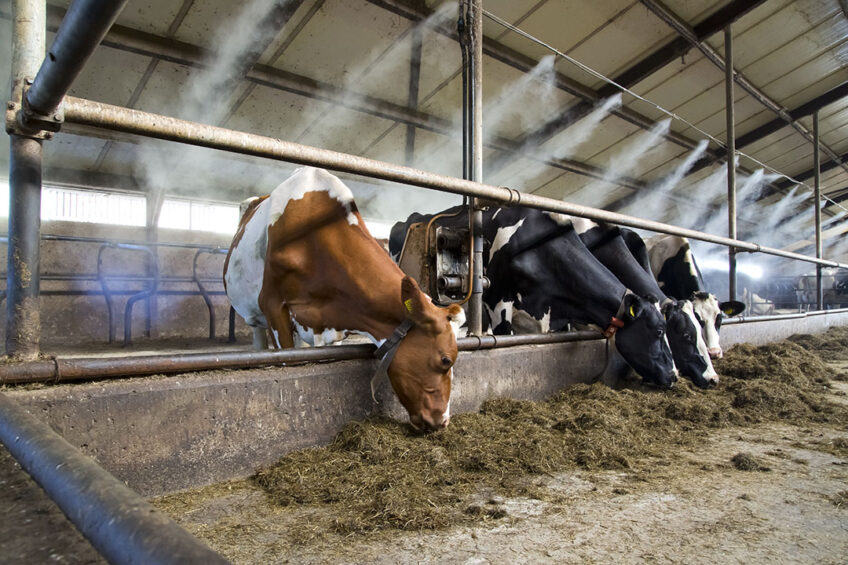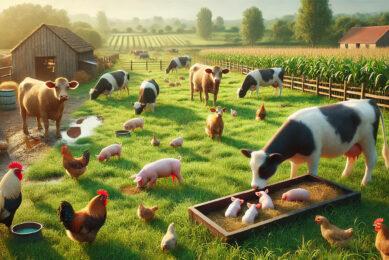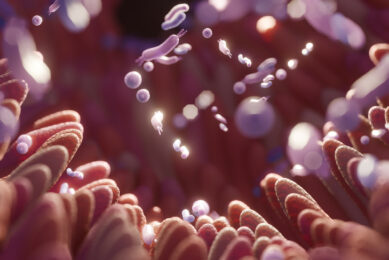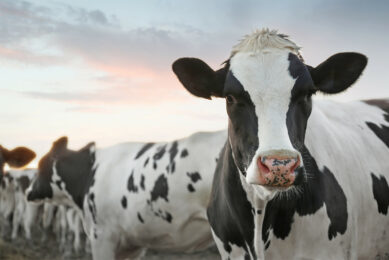Heat stress and rumen health in dairy cows

As both peak daily temperature and the number of extreme heat days per year increase in various regions of the world, farmers must learn to better manage heat stress (HS). Along with other physiological impacts of this condition, rumen function is negatively affected, which in turn affects animal performance.
Part of the Gut Health 2022 Special
The unique digestive physiology of ruminants adds “additional layers of complexity” that can contribute to the failure of multiple body systems present in the cases of HS that lead to cow death, notes a team of US researchers in a May 2022 paper ’Lethal heat stress: The putative pathophysiology of a deadly disorder in dairy cattle.’ Additionally, pre-existing health conditions or congruent infections like mastitis can intensify risk of death related to HS in ruminants.
A group of scientists from South Korea and the Philippines looked specifically at HS effects on the rumen in a February 2022 paper entitled ’Heat Stress: Effects on Rumen Microbes and Host Physiology, and Strategies to Alleviate the Negative Impacts on Lactating Dairy Cows.’ They note that overall, HS can reduce rumination, rumen activity and reticulo-rumen motility, “thus affecting the fractional passage rate of digesta in the gastrointestinal tract.”
When HS occurs, there is a shift in the rumen bacteria community due to decreased ruminal pH, decreased acetate concentration and an increased concentration of ruminal lactate. A lower rumen pH (rumen acidosis) leads to a decrease in the number of bacteria that are able to digest fibre in the ration. In turn, less food energy available to the cow can give rise to subacute ruminal acidosis, a well-known metabolic disorder that suppresses the production of milk.
Other rumen fermentation functions, blood parameters and metabolites are also negatively affected by a cow’s physiological responses to HS, leading to decreased feed consumption, milk production efficiency and other cow performance parameters. These metabolites include isoleucine, methionine, myo-inositol, tryptophan, tyrosine and urea.
At the cellular level, HS causes increased production of heat shock proteins and decreased production of immune system metabolites. Overall, “these changes in physiology, metabolism, and microbiomes in heat-stressed dairy cows require urgent alleviation strategies,” state the scientists.
Helping cows maintain balance
Dairy farmers should minimise HS by providing shade, mist or sprinkling with water and fans, and cooling ponds if possible. Providing only shade isn’t enough because in many cases, air temperature in the shade isn’t much lower than in the sun on extreme heat days, especially if there is high humidity. Farmers will also have better genetic selection for heat-tolerant cows resulting from growing understanding of the ‘slick coat gene’ and other genes that affect heat tolerance.
The scientists also note that in considering “the usual physiological and metabolic changes of heat-stressed animals, it is also important to understand the relationship between HS and the gut microbiome to help develop strategies to alleviate the effect of HS by manipulating the ruminal microbial composition.”
Supplementation with vitamins, minerals, plant extracts and probiotics have been shown to be helpful. The effects of HS can also be mitigated with feeding dietary yeast and fungal supplements.
In addition, this team says “increasing the amount of energy-rich rations, such as by providing additional concentrate, is necessary to compensate for the reduced intake caused by HS and to counteract the high production of bodily heat caused by feeding forages.” However, caution must be used to maintain normal rumen pH.
Join 13,000+ subscribers
Subscribe to our newsletter to stay updated about all the need-to-know content in the dairy sector, two times a week.






